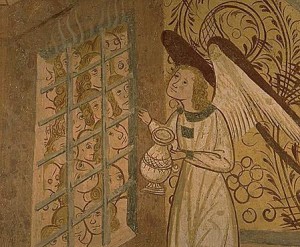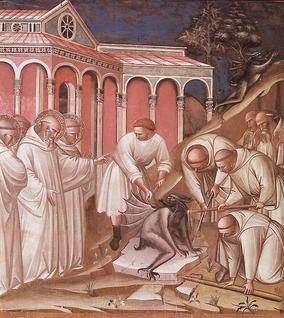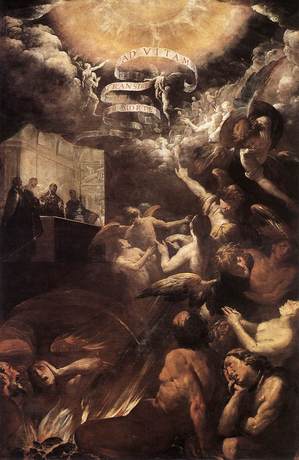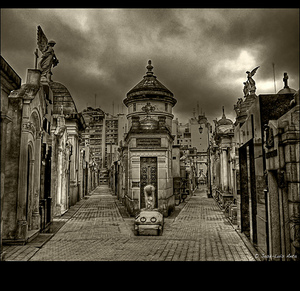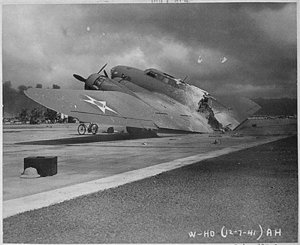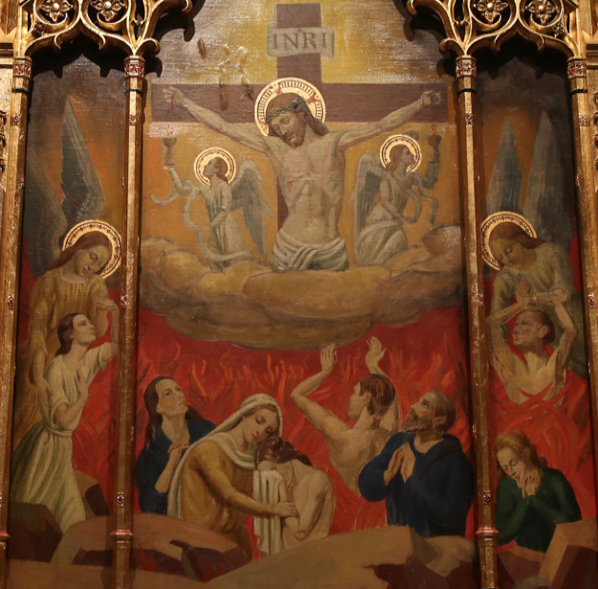 Eternal rest grant unto them, O Lord, and let the radiance of your light shine forever upon them (cf. 2 Es 2:35).
Eternal rest grant unto them, O Lord, and let the radiance of your light shine forever upon them (cf. 2 Es 2:35).
To you our praise is due in Zion, O God.
To you we pay our vows, you who hear our prayer; to you all flesh will come (Ps 64:2-3).
Requirements for Obtaining a Plenary Indulgence on All Souls Day (November 2 )
– Piously visit a church to pray for the faithful departed
– Say one “Our Father” and the “Creed” in the visit to the church
– Say one “Our Father” and one “Hail Mary” for the intentions of the Pope
– Worthily receive Holy Communion (ideally on the same day)
– Make a Sacramental Confession within a week of (before or after) All Souls Day
– that one be free from all attachment to sin, even venial sin.
Requirements for Obtaining a Plenary Indulgence from November 1 to 8
– Devoutly visit a cemetery and pray for the dead.
– Say one “Our Father” and one “Hail Mary” for the intentions of the Pope
– Worthily receive Holy Communion (ideally on the same day)
– Make a Sacramental Confession within a week of (before or after) All Souls Day
– that one be free from all attachment to sin, even venial sin.
The “technical” things on Indulgences (so that we don’t fall into error)…from the Handbook of Indulgences, Norms:
“1. An indulgence is the remission in the eyes of God of the temporal punishment due to sins whose culpable element has already been taken away. The Christian faithful who are rightly disposed and observe the definite, prescribed conditions gain this remission through the effective assistance of the Church, which, as the minister of redemption, authoritatively distributes and applies the treasury of the expiatory works of Christ and the Saints.”
“22. The prescribed work for gaining a plenary indulgence attached to a church or oratory is a devout visit there, which includes the recitation of the Lord’s Prayer and the Creed (Pater Noster and Credo), unless otherwise stated in a specific grant.”
“23. 1. Besides the exclusion of all attachment to sin, even venial sin, the requirements for gaining a Plenary Indulgence are the performance of the indulgenced work and fulfillment of three conditions: Sacramental Confession, Eucharistic Communion, and prayer for the Pope’s intentions.
- Several Plenary Indulgences may be gained on the basis of a single Sacramental Confession; only one may be gained, however, on the basis of a single Eucharistic Communion and prayer for the Pope’s intentions.
- The three conditions may be carried out several days preceding or following performance of the prescribed work. But it is more fitting that the Communion and the prayer for the Pope’s intentions take place on the day the work is performed.
- If a person is not fully disposed or if the prescribed work and the three mentioned conditions are not fulfilled, the Indulgence will only be partial …”
- The condition requiring prayer for the Pope’s intentions is satisfied by reciting once the Our Father and Hail Mary for his intentions (Pater Noster and Ave Maria); nevertheless all the faithful have the option of reciting any other prayer suited to their own piety and devotion.”
From the Handbook of Indulgences, Grants
- Visiting a Church or an Oratory on All Souls Day
A Plenary Indulgence, which is applicable only to the Souls in Purgatory is granted to the Christian faithful who devoutly visit a church or an oratory on (November 2nd,) All Souls Day.13. Visiting a cemetery
An indulgence is granted the Christian faithful who devoutly visit a cemetery and pray, if only mentally, for the dead, This indulgence is applicable only to the souls in purgatory. This indulgence is a plenary one from November 1 through November 8 and can be granted on each one of these days. On the other days of the year this indulgence is a partial one.



